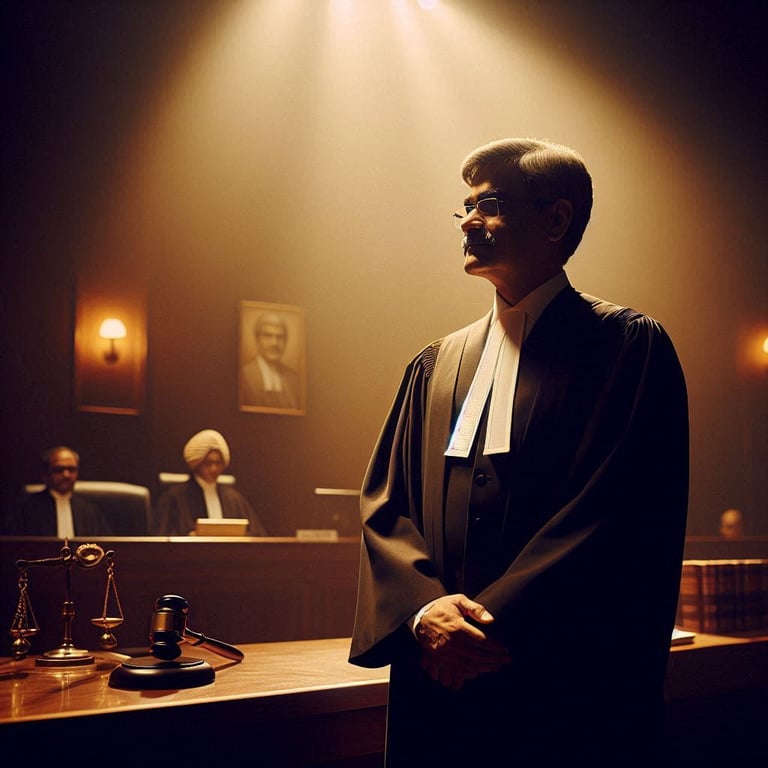Can the Attorney General Represent an Individual in a Private Matter?
Makilolo Tamara-Brakemi Blessing
Igbinedion University Okada
This blog is written by Makilolo Tamara-Brakemi Blessing, a Law Graduate of Igbinedion University Okada


INTRODUCTION
Like a baby, this tangential legal question has cried to the ears of our legal jurisprudence for answers.
It is important to take off by underscoring the nature, scope, and extent of the powers of the Attorney General before addressing the nucleus of this pivotal legal question.
The Attorney General is a public officer and an appointee of the government.
According to Section 150(1)&(2) of the Nigerian Constitution, the Attorney General is a legal practitioner, a chief law officer of the state or Federation and a minister of Justice.
Constitutionally speaking, by the provisions of Section 174 and 211 of the Constitution, he has the powers to institute, undertake, continue, and discontinue criminal proceedings in Nigeria before judgement is given.
Additionally, the Attorney General has the power to provide legal advice to the government and its agencies. This includes; advising on matters related to law and Justice, as well as ensuring that governmental actions are lawful and constitutional, and enforcing regulations. In the case of DR JOSEPH NWOBIKE SAN V FRN SC/CR/161/2020, the court held that the Attorney General has the powers to enforce laws that relates to economic and financial crimes.
THE ATTORNEY GENERAL’s LEGAL REPRESENTATION IN PRIVATE MATTERS.
Bearing in mind the fact that the provisions of Section 36(6)(c) of the Constitution allows for an individual to defend himself either in person or with the aid of a legal practitioner, can the Attorney General who is a "legal Practitioner" defend an individual in a private matter? Well, the law in this regard is settled beyond any peradventure of doubt.
The Attorney General cannot defend an individual in a private matter by the Attorney General is a public officer and been a public officer, it will amount to abuse of functions if he represents in a private matter. This position of law has been statutorily clothed with the provisions of Section 6(b) of the Code Of Conduct Bureau & Tribunal Act which precludes a public officer from engaging or participating in any private profession or trade. Also, Rule 8 of the Rules of Professional Conduct for lawyers (2007) further precludes a lawyer on salary employment from representing a client in court. A combined effect of these statutory authorities presupposes that the services of the Attorney General cannot be engaged by a party in a private matter because he is a public officer as same will amount to an abuse of office.
Notably, it is important to state emphatically that in a bid to invoke the provisions of the Code of Conduct Bureau & Tribunal Act against the Attorney General when challenging his legal representation in a private matter, same must be brought before the Code Of Conduct Bureau Tribunal before it can be enforced. This position of law has gained Judicial erection by our courts in AHMED V. AHMED (2013) ALL FWLR (PT. 699) 1025 & PLATEAU STATE UNIVERSITY BOKKOS V. JOSEPH (2018) LPELR-46049 where the court held that it lacked the Jurisdiction to entertain an issue of whether a salaried lawyer can represent a client in court.
It suffices to say that to challenge the authority of an Attorney General to appear before a court in a private matter, same must be properly initiated before the Code Of Conduct Tribunal.
REFERENCES
1. Section 150(1)&(2) of the Nigerian Constitution
2. AHMED V. AHMED (2013) ALL FWLR (PT. 699) 1025
3. PLATEAU STATE UNIVERSITY BOKKOS V. JOSEPH (2018) LPELR-46049
4. Section 6(b) of the Code Of Conduct Bureau & Tribunal Act
5. DR JOSEPH NWOBIKE SAN V FRN SC/CR/161/2020
6. Section 36(6)(c) of the 1999 Constitution of Federal republic of Nigeria
